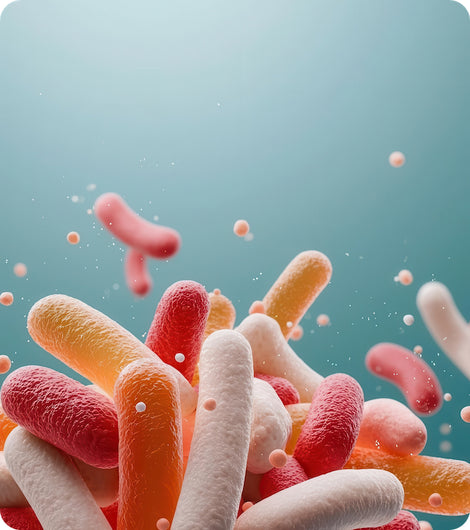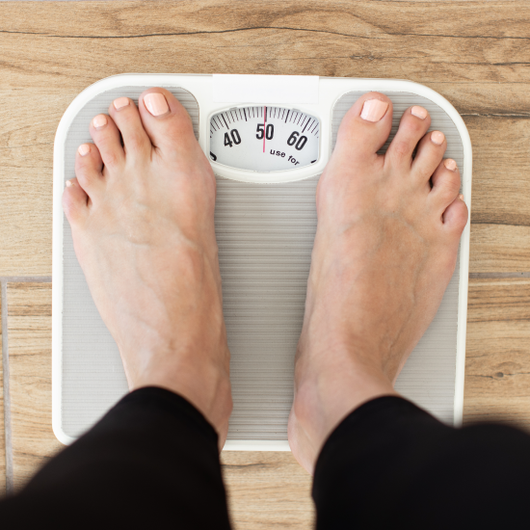If you’re one among over 160 million overweight Americans, you have probably tried countless diets and exercise regimens to try and lose weight, but without any lasting results.
That’s because you're missing critical information.
One incredibly significant piece of the puzzle is to understand the connection between the gut microbiome and weight loss. Your gut microbiome refers to the community of commensal organisms residing within your digestive tract - a community whose ecology is deeply enmeshed with your well-being.
Let's take a look at what effect your gut microbiome ecology has on weight loss, examine whether or not you can change your gut bacteria composition to lose weight, and explore some common regimens others have tried.
We'll also discuss some frequently asked questions about changing the gut microbiome to effect weight loss.
Here are the Proven Effects of Gut Ecology on Weight Loss
Nearly a decade ago, a team at Cambridge University Press published their findings on gut microbiota in obesity and metabolic disorders. Their work found that the gut ecosystem affected body weight regulation in several ways:
- Influencing metabolic, neuroendocrine and immune functions
- Regulating gene expression
- Improving the ability to extract and store energy from food
The study also found that gut microbiota imbalances are responsible in part for inflammation, insulin resistance, and weight gain.
Which Gut Bacteria Cause Weight Loss?

Image by Digbi Health
In the Cambridge findings, correlations between obesity and certain levels of specific types of bacteria were identified.
For example, an abundance of firmicutes like eubacterium dolichum, halomonas, and sphingomonas were found disproportionately in obese test subjects. The same study found comparatively reduced bacteroidetes and bifidobacterium and high proportions of archaea in subjects that were overweight.
Another valuable conclusion from the Cambridge study is that reduced bacterial diversity in the gut flora has a direct correlation with obesity.
A gut microbiome comprised of fewer bacterial families has a strong correlation with weight gain.
Can You Change Your Gut Bacteria to Lose Weight?
Of course, since food has an effect on your gut microbiome, you can take control of your health through diet. As you already know, making long-term changes to the foods you eat is easier said than done, but probably not for the reasons you might think!
Your gut flora is multifaceted and unique to you, so gut bacteria based obesity treatment must be individualized. The truth about obesity is that it has a variety of contributing factors including an imbalanced gut microbiome.
But, there are general changes you can make to alter your gut microbiome.
Is There an Effective Microbiome Diet?

Image by Digbi Health
Eating right can help you lose weight and even manage the negative effects of stress. But, as with everything related to weight loss, there is no one-size-fits-all approach to an efficient diet. Nevertheless, when you educate yourself about genetic predisposition, nutrition, and gut health, you can empower your eating habits.
Recommended Reading:
- Certain genes can make gluten-free products unhealthy for you
- Your DNA and gut biome determine if coffee is good or bad for your heart
- Cooking oils are harmful to African Americans because of gene variations
The best diet approach is to determine which foods are best for you based on your DNA and your unique gut microbiome.
Gut Microbiome and Weight Loss FAQs
Here’s what most people struggling with obesity and being overweight want to know about their gut health and weight loss.
-
How do gut bacteria affect your weight?
An overabundance of harmful “bad” bacteria, too few beneficial “good” bacteria, and a lack of microbial diversity can contribute to unhealthy weight gain and obesity. Balanced gut flora can contribute to weight loss.
-
Can bacterial overgrowth cause weight gain?
An abundance of “bad” bacteria like firmicutes like eubacterium dolichum, halomonas, and sphingomonas correspond with unwanted weight gain. Other factors like too few “good” bacteria and a lack of microbial diversity also correlate with obesity.
-
How do I get a healthy gut biome?
The first step to facilitate a healthy gut microbiome is to gain a clear picture of your current microbiota. Every individual has a unique balance of bacteria in their body, so a sample from your gut can help you come up with a customized and effective plan to improve your health.
-
How many good bacteria are in the gut?
The balance of beneficial and harmful bacteria in the gut varies from person to person. But, you have up to 1 trillion bacteria in your gut that are made up of 300 to 500 different species.
-
Can probiotics help you lose weight?
Probiotics themselves will not induce weight loss. However, effectively rebalancing the gut flora will have an impact on your ability to lose weight, and when used properly in conjunction with the right prebiotics at the right stage of the healing process, probiotics can help rebalance the gut microbiome.
-
Can antibiotics make you put on weight?
Antibiotics themselves will not cause you to gain weight, but they are known to wipe out many of the beneficial bacteria from your digestive system. An imbalanced gut microbiome can contribute to excess body weight.
Final Thoughts
Gut microbiome and weight loss are directly correlated. No single diet plan can deliver the lasting results you need, but by considering your gut health you can create a customized and lasting plan to heal and to lose weight.
Digbi Health has operationalized the first gut microbiome and DNA-based weight loss program covered by insurance companies. For personalized guidance to help you navigate your unique biology, metabolism, lifestyle, and food preferences, try a 4-month, customized gut biome and DNA-based weight loss program.











